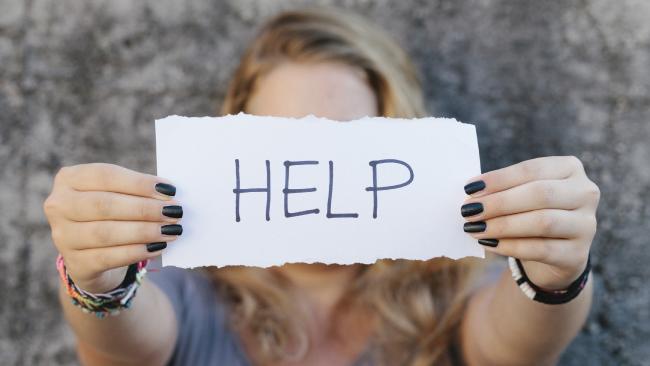
Losing a loved one to suicide is one of the most difficult things someone can experience. Unexpected deaths are shocking and traumatic, leaving those left behind little time or space to figure out how to carry on with everyday activities. Most of us are blindsided and consumed with trying to make sense of what happened. This is why many suicide loss survivors need extra tender loving care (TLC).
It’s hard to know what to do or say when you learn someone has experienced suicide loss. But, if you feel moved to offer support, there are things you can do to help a friend, neighbor, colleague or family member cope. We understand that it can feel intimidating to extend help because we often don’t know why a suicide occurred or how a person died. Ultimately, knowing those things doesn’t really affect one’s ability to offer help. You can and should acknowledge the loss in a way that feels appropriate to bring another individual comfort after an unexpected passing.
How can you help after a suicide loss?
I recently remembered an act of kindness that helped to carry me through the thickest periods of grief after my dad died.
My aunt (mom’s sister) sent my brother and me individual emails every morning for a long period of time. They were simple and short messages, but they were motivational and thoughtful. For a solid year or two, the thought of my dad’s suicide was the first and last thought of my day. There was something nice about knowing I’d wake up to a positive message that helped to slightly reduce the sting of loss – particularly when it was early on a cold, dark morning during the fall/winter season. Her notes didn’t rush me to try to cheer up or ask me to look on the bright side. However, in a sentence or two, she let me know she was thinkin g of me and that I wasn’t alone – that was enough. Suicide loss certainly feels lonely. On a Friday, she’d send a virtual high five for getting through the week and give me “permission” to rest on the weekend.
g of me and that I wasn’t alone – that was enough. Suicide loss certainly feels lonely. On a Friday, she’d send a virtual high five for getting through the week and give me “permission” to rest on the weekend.
I don’t remember how long this went on for, but it had to have been at least a month or two. I knew the messages were special at the time, yet I can say that they mean even more now, in hindsight.
Here are 10 additional ways to support someone bereaved by suicide loss, as shared by survivors.
- Send Regular Messages – As I experienced, this was a common theme that was truly appreciated by survivors. Sending one message is very thoughtful. However, after that initial wave comes through, it’s nice to see that you’re still top of mind. Consider sending frequent emails, Facebook messenger notes or texts (daily to times per week) with a message such as “I’m thinking of you,” or “I know this is hard, I’m here” or “You mean a lot to me and I’m sorry you’re experiencing this.” You may receive a reply but you may not – and that’s ok (even if it’s tough to see the “seen” acknowledgment on a social media channel).
- Mail Multiple Cards – One bereaved mother shared that 40 of her son’s
 colleagues sent a flow of cards with pictures and memories inside. Another survivor said that she received a card from a friend every week for a whole year. Memories are such a gift to share!
colleagues sent a flow of cards with pictures and memories inside. Another survivor said that she received a card from a friend every week for a whole year. Memories are such a gift to share! - Go to Them – If the survivor is a super close connection, such as a sibling or best friend from college, drop what you can and be there. Some survivors shared stories of people traveling from across the state, country and world to be there in the early days. You can sit with their head on your shoulder, offer to sleep next to them or just be “present” without expectations of anything more (e.g. entertainment). This is typically reserved for that type of friend or connection who knows you better than anyone else and it would be reasonable to just sit in silence without having to talk.
- Send a Meal – If you can, leave it on the doorstep or have it delivered without having to ask too many questions about preferences or availability. Just say – I am leaving this for you or I left it for you. A few readers commented that items landed in their mailbox or doorstep and it was nice to not have to make too much chit chat. When we recently lost my father-in-law to another cause, someone sent a lovely delivery of a full meal from Honey Baked Ham from many states away. (They placed a local order.) There are also services like Spoonful of Comfort. If you drop off a dish, you can leave a post-it or tape your name to the pan and come back to get it another time so the survivor knows what belongs to whom.
- Help with Yard Work – If you learn that a neighbor has lost someone, pop by to cut the grass, rake or roll the garbage cans in/out. If you live afar, you could look into a temporary service and pool in on the expense with a small group.
- Bring Comforts and Let Them Cry – One reader mentioned that a friend came by with a Snickers bar, a Dr. Pepper and Kleenex. They didn’t try to bring or force cheer.

- Illustrate their Support Network – Photo memory boards are a common element of a funeral. As a twist on this, one survivor received an envelope full of pictures of friends, family, and colleagues – none of which included her loved one – simply to remind HER that she had a large community there to support her.
- Research Support Solutions – “A friend of mine called a bunch of therapists on a list who had experience with suicide loss and screened them for me so I didn’t have to. I have been seeing the one she picked for me for over six months now.”
- Make Life A Little Easier – Another survivor said that a friend brought a bunch of paper products including paper towels, napkins, cups, plates, etc. so that dishes and cleaning were crossed off the list for a while.
- Let them grieve their own way, on their own time. It’s important to remember that every single survivor of suicide loss is unique – even within the same family or circle. Some of these tips will work for some and not others. Understand that there is never a day that someone will be “over” or “healed from” suicide loss, nor should they be encouraged to do so. Empathize and embrace that the individual is forever changed. Some days will be easier than others and the journey isn’t linear. Messages can be focused on “you’re not alone” versus “It’s time to start getting up and out there again, etc.”
Drop us a comment if you have questions about how to support a connection after a loss. We would also like to continue hearing from survivors about what was most helpful in the days, weeks and months after the loss.
We have previously shared on this topic if you’d like to read even further before reaching out to a connection.




Good article! Thanks
Becky,
I so appreciate this blog and thank you for sharing your wisdom. Healing is never easy, especially from an unexpected traumatic and intentional event. You and Jessica and your guest contributors have helped so many mourners navigate the very difficult journey of those left behind.
Every time I offer a Grief Support Group, I utilize some of your wisdom, knowing it comes from hard experience and soul-ripping pain. It takes courage to put it all out there as you have done over the past years. Just know it is appreciated more than you can imagine.
Wishing you joy and peace as you move into the holiday season. Enjoy the little ones! My best to your Mom. Jan
This is so helpful to hear and is definitely the type of fuel we soak up to keep it going! Thank you
Great article, I hope I will remember to do this for someone else—if this should God forbid, happen to them. This was a very traumatic time in my life.
Hi,
Thank you for taking time to write this. We hear so often that people want to help, but don’t know how. In addition to the great udeas above, I have a few to offer. As a suicide loss survivor, and now a suppprt leader, I offer the following:
-In addition to the paper products, Tupperware or disposable containers for food etc that is brought.
-Kleenex, peppermints, individual snacks, coloring books,…Kleenex for obvious reasons, peppermints bc ppl.often forget to drink or eat, so the mints help keep the throat from drying out, snacks for ppl thatbstop by or the survivors who can’t eat full meals and it’s more convenient, coloring books for little one who are involved or may stop by.
Keep up the good work!!
Jennifer
I lost my husband to suicide 5 years ago and I still haven’t got over it, I’ve met someone else to much disgust to my brother and sisters they don’t talk to me anymore which hurts to pieces when I needed them , I need help in the garden gutters cleaning and other jobs , I think if it wasn’t for my friends I would be in a nut house.